Home
The Department of Health classified the novel coronavirus (named by the World Health Organization Covid-19) as a ‘serious and imminent threat’ to public health so that, under the 1984 Public Health (Control of Disease) Act, quarantine could be made compulsory. There were 93 British citizens in quarantine at Arrowe Park Hospital in the Wirral and 105 from a later evacuation flight in a conference centre in Milton Keynes. Steve Walsh, a gas salesman from Hove in East Sussex, was found to have picked up the virus in Singapore and unwittingly infected 11 people at a French ski resort. One of them was a locum GP at the County Oak medical centre in Brighton, which was temporarily closed. British Airways cancelled flights to and from Beijing and Shanghai until 31 March.
The government announced that the HS2 rail project, with a high-speed line from London to Birmingham (due for completion by 2031) and branches from there to Manchester and Leeds (for completion by 2040), would go ahead. ‘The cost forecasts have exploded, but poor management to date has not detracted from the fundamental value of the project,’ Boris Johnson, the Prime Minister, told parliament. The cost estimated by the Oakervee review is £106 billion. The government promised £5 billion over the next five years to improve bus services and cycle routes in England. Michael Gove, the Chancellor of the Duchy of Lancaster, said that on 1 January 2021, at the end of the Brexit transition period, ‘We will have to be ready for the customs procedures and regulatory checks that will inevitably follow.’ Downing Street said work was being done ‘by a range of government officials’ on the idea of building a bridge from Scotland to Northern Ireland. A storm swept over Britain, flooding hundreds of houses and leaving thousands without electricity. Ice dropping on to traffic closed the Queensferry Crossing between Edinburgh and Fife.
A Home Office flight deported 17 convicted prisoners to Jamaica, but a court order prevented 25 others from being sent, on the grounds that insufficient legal advice had been available for them. In ten hours, Border Force and partner agencies dealt with six vessels in the Channel carrying 102 would-be migrants to England. Emergency legislation was rushed through parliament to prevent terrorists being automatically freed early from jail. The economy saw no growth in the last quarter of 2019, according to the Office for National Statistics. The Queen’s grandson Peter Phillips and his wife Autumn announced they were to divorce.
Abroad
By Sunday 9 February, 908 people in China were reported to have died from the novel coronavirus, with more than 40,000 having been infected. The next day, 103 people died in Hubei province alone. A cruise ship, the Diamond Princess, with 3,700 passengers and crew on board, was quarantined in Yokohama, with 135 cases of coronavirus detected. Another cruise ship, the Westerdam, with 1,450 passengers, was not allowed to dock in Thailand. In Thailand a soldier killed his commanding officer, stole weapons from a military base, and shot dead 26 people at a shopping mall in the city of Nakhon Ratchasima, wounding 57, before being shot dead himself.
In the Irish general election, Sinn Fein upset the apple cart by winning 37 seats (out of 160), an increase of 14 on the 2016 election. Fianna Fail lost six seats against 2016, but became the largest party with 38 seats; Fine Gael, whose leader Leo Varadkar had been the Taoiseach of the outgoing government, won 35 seats, 15 fewer than in 2016. The Greens increased their seats from 10 to 12. Bernie Sanders won the New Hampshire Democratic primary, a little ahead of Pete Buttigieg and a long way ahead of Joe Biden.
Five more Turkish soldiers were killed as Syrian forces continued their assault on Idlib province; President Recep Tayyip Erdogan of Turkey said that Syria would ‘pay a very, very heavy price’. The Pentagon put the number of US troops suffering from traumatic brain injuries after the Iranian attack on a US base in Iraq in January at 109, of whom 70 per cent had returned to duties; no casualties had initially been reported. Houthi rebels were blamed for obstructing distribution of aid in the parts of Yemen they control, where millions depend on food donated from overseas. In Australia heavy rains put out most bushfires in New South Wales. Four rare mountain gorillas were struck by lightning in Mgahinga national park in Uganda. CSH
Got something to add? Join the discussion and comment below.
Get 10 issues for just $10
Subscribe to The Spectator Australia today for the next 10 magazine issues, plus full online access, for just $10.
You might disagree with half of it, but you’ll enjoy reading all of it. Try your first month for free, then just $2 a week for the remainder of your first year.

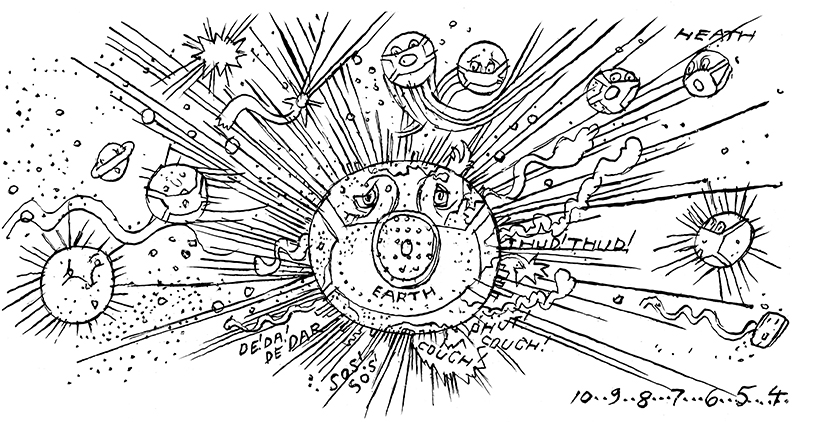
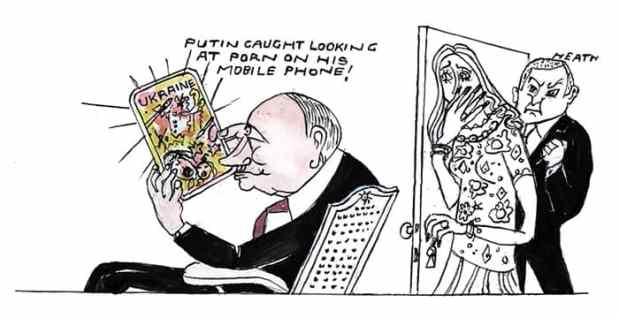
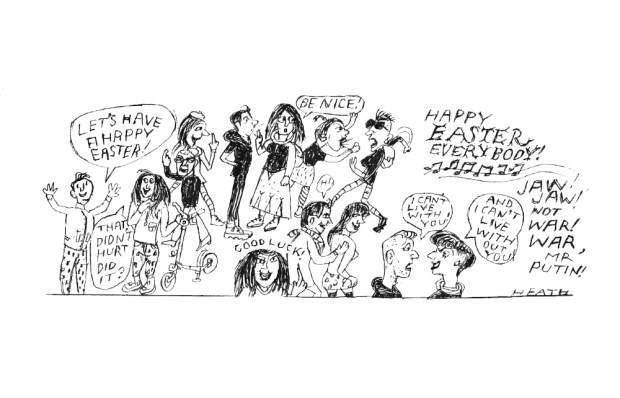
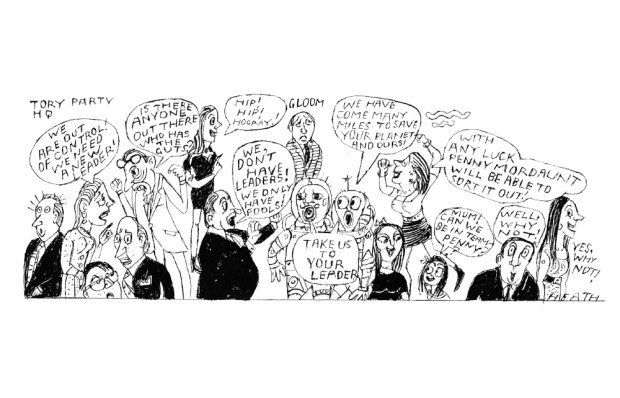

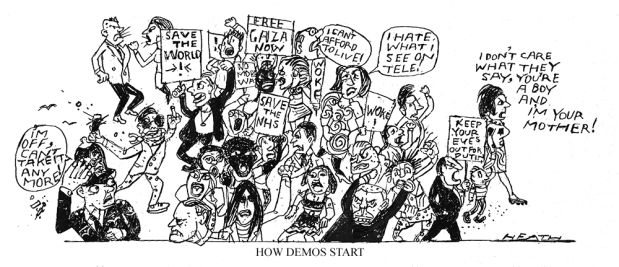
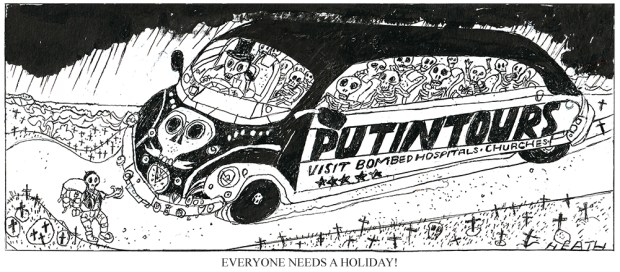






Comments
Don't miss out
Join the conversation with other Spectator Australia readers. Subscribe to leave a comment.
SUBSCRIBEAlready a subscriber? Log in